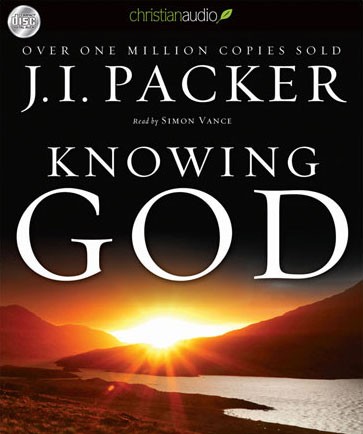Download The Free Guide
Discover practical conversation skills to get unbelievers thinking and make way for the Spirit’s work in their lives.
"*" indicates required fields
 Forty years ago J. I. Packer published his well-known book on the person of God, Knowing God. Recently, I have been listening to the audiobook version and I am reminded again why this is considered a classic. Packer gets right to the heart of the issue for many believers–do you know the God whom you serve? Many Christians feel uncomfortable claiming to know God, as if such an admission could only ever be a reflection of piousness and spiritual pride. Yet, Packer reminds us that knowing God ought to be the experience of every Christian. How many serve God faithfully, but know little of him nor experience delight in who he is!
Forty years ago J. I. Packer published his well-known book on the person of God, Knowing God. Recently, I have been listening to the audiobook version and I am reminded again why this is considered a classic. Packer gets right to the heart of the issue for many believers–do you know the God whom you serve? Many Christians feel uncomfortable claiming to know God, as if such an admission could only ever be a reflection of piousness and spiritual pride. Yet, Packer reminds us that knowing God ought to be the experience of every Christian. How many serve God faithfully, but know little of him nor experience delight in who he is!
In chapter two where he describes the people who know their God, he addresses the transformation that necessarily occurs within a person who knows God. He expounds on several characteristics, taken from the life of Daniel. First, he notes that those who know their God have great energy for God. From Daniel 11:32 he draws the principle that such people take action in response to the anti-God trends around them. “While their God is being defied or disregarded, they cannot rest; they feel they must do something; the dishonor done to God’s name goads them into action.”
This is a much needed word today, when cowardice and aversion to conflict mark much of the Christian church and the clergy. How many situations call for a man to stand up and object, but few such men can be found? How much wrong is tolerated in churches and other organizations because no one wants to pay the price of leadership? Those who voice objection to the defamation of the truth are often perceived to be critical and contrarian curmudgeons who luxuriate in opposition. But Packer objects to such a characterization.
“It is simply that those who know their God are sensitive to situations in which God’s truth and honor are being directly or tacitly jeopardized, and rather than let the matter go by default will force the issue on men’s attention and seek thereby to compel a change of heart about it–even at personal risk.”
Just as knowing my wife intimately calls me to action when she is denigrated or threatened, so knowing God demands action when his glory is diminished or defaced by the words or actions of others. And just as such actions call for denunciation when others do this, they should equally call for renunciation of myself when I myself do such things. Strong love calls for action, and those who know God cannot but help themselves when God and his truth are obscured.
Second, Packer says that those who know their God show great boldness for God.
“Daniel and his friends were men who stuck their necks out. This was not foolhardiness. They knew what they were doing. They had counted the cost. They had measured the risk…It is the spirit of all who know God. They may find the determination of the right course to take agonizingly difficult, but once they are clear on it they embrace it boldly and without hesitation. It does not worry them that others of God’s people see the matter differently and do not stand with them.
(Were Shadrach, Meshach and Abednego the only Jews who declined to worship Nebuchadnezzar’s image? Nothing in their recorded words suggest that they either knew or, in the final analysis, cared. They were clear as to what they personally had to do, and that was enough for them.)
Packer concludes, “By this test also we may measure our own knowledge of God.” In other words, if we have no holy boldness when it comes to standing for truth and righteousness, we probably don’t know the God of truth and righteousness very well.
by Jeff Mindler, Research Assistant “For the wrath of God is revealed from heaven against all ungodliness and unrighteousness of men, who by their...
by Jeff Mindler, Research Assistant at Apologetics for the Church “Everyone then who hears these words of mine and does them will be like a wise man who built...
The confession that a man, named Jesus, is the Christ, the Only-Begotten of the Father, is in such direct conflict with our experience and with all of our...